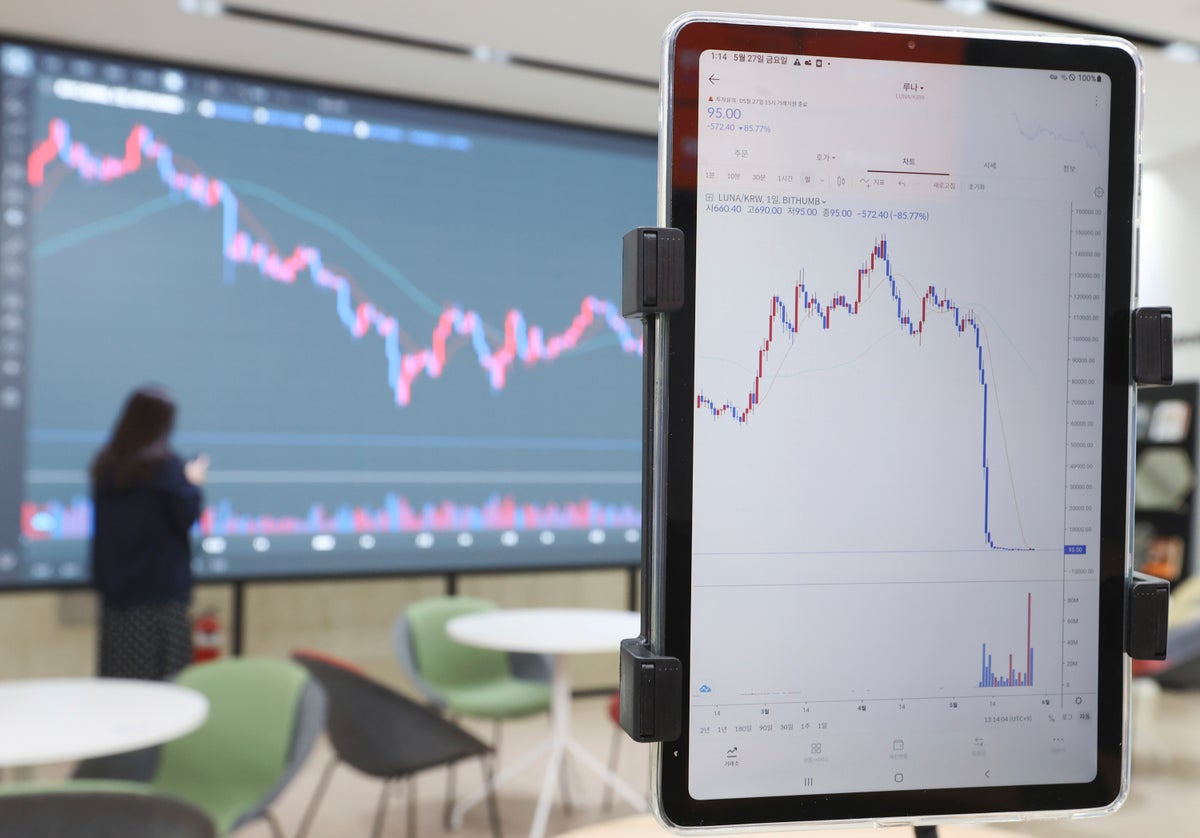
South Korean prosecutors have barred dozens of people connected to Terraform Labs from leaving the country as they expand an investigation into a $40 billion collapse of the company’s cryptocurrency that devastated traders around the world.
The Seoul Southern District Prosecutor’s Office said it plans to summon them for questioning as it tries to determine whether the company committed fraud or violated financial regulations before the implosion of its digital currencies, TerraUSD and Luna, in May.
The office didn’t specify the number of people placed under the monthlong travel ban or who they are, although they may include current and former staff members and developers. Prosecutors refused to provide more details, saying the investigation was ongoing.
Daniel Hong, a former Terraform developer, tweeted a government notice showing that he was banned from leaving the country through July 19.
Mr Hong wrote: “stop asking me why i couldn’t make it to NYC frens, this is why: the Korean government imposed an exit ban for all ex-@terra_money employees today.”
The collapse of TerraUSD and Luna, developed by Terraform Lab’s Stanford-educated co-founder Do Kwon, affected an estimated 280,000 South Korean investors while causing broader turmoil in the global cryptocurrency market.
TerraUSD was designed as a “stablecoin,” which are pegged to stable assets like the US dollar to prevent drastic fluctuations in prices. However, around $40 billion in market value was erased for the holders of TerraUSD and its floating sister currency, Luna, after the stablecoin plunged far below its $1 peg in May.
South Korean prosecutors launched the investigation last month following collective complaints filed by dozens of investigators. They could try to summon Kwon, who is reportedly in Singapore and faces accusations that he exaggerated the stability of his currencies.
The Bank of Korea, South Korea’s central bank, said in a report published earlier this month that the collapse of TerraUSD and Luna was a major factor in the global currency market shrinking by more than 40 per cent compared to late last year, when its market value reached over $2.3 trillion.
The US Federal Reserve’s recent decision to raise its key interest rate to fight inflation has also contributed to the slide by further repelling investors from volatile assets, the bank said.







